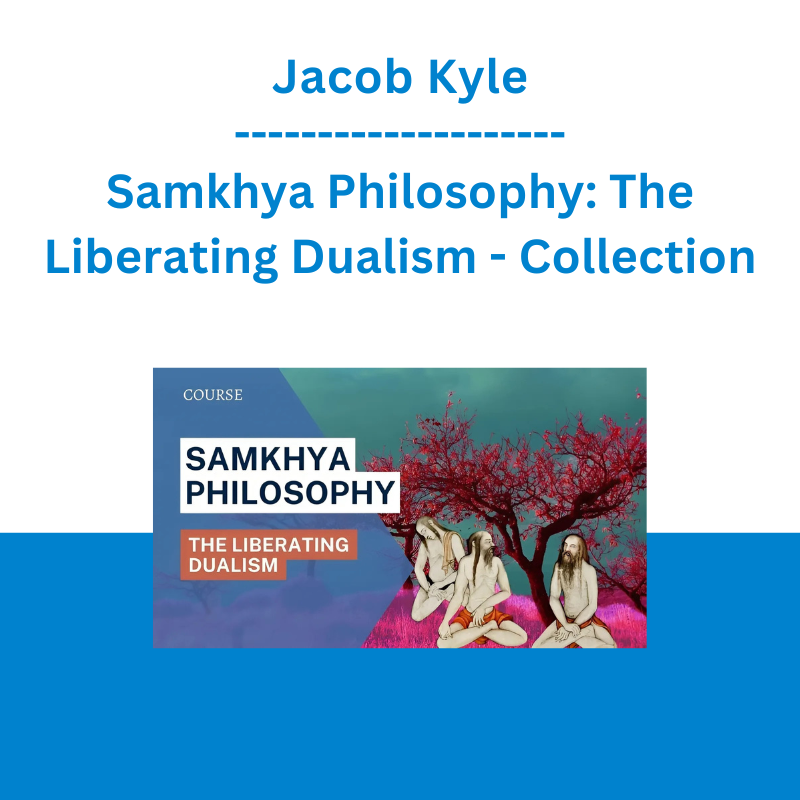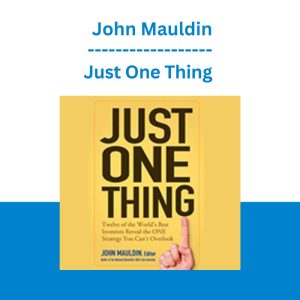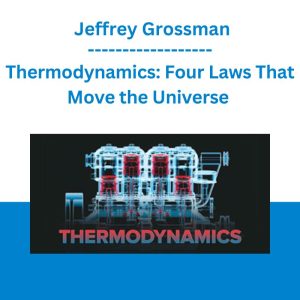*** Proof of Product ***
Exploring the Essential Features of “Jacob Kyle – Samkhya Philosophy: The Liberating Dualism – Collection”
About
An understanding of yoga philosophy is incomplete without a knowledge of Sāṃkhya. Often referred to as the “metaphysical backdrop of classical yoga”, Sāṃkhya has roots in an ancient oral tradition prior to the written Vedas and is considered to be India’s oldest philosophy.
Far from being a provincial cultural artifact from a bygone era, the classical form of Sāṃkhya (as espoused in the Sāṃkhya Karika of Iśvarakṛṣṇa) remains a profoundly sophisticated and relevant system that challenges modern-day assumptions about identity, knowledge, nature, dualism, consciousness and liberation. Engaging with its mode of inquiry is a transformative encounter with a radically alternative way of approaching consciousness and the human experience.
In this 4-week online course, we will explore the many fascinating insights of Sāṃkhya philosophy. We will discover what liberation looks like for Sāṃkhya and how it’s teachings are still relevant for us today. We will look at its relationship to other Indian traditions like Yoga and Ayurveda, as well as engage in a cross-cultural dialogue with Western philosophy through figures like Immanuel Kant, Jean-Paul Sartre, Edmund Husserl and Jacques Lacan.
Please join us on this mind-bending adventure into one of Mother India’s most beloved transmissions.
Module 1: The Basic Concepts
In this module, we will outline the structure of Sāṃkhya philosophy and introduce its basic concepts, including puruṣa, prakṛti, ahaṅkāra, buddhi, manas, kaivalya and the gunas, We will introduce the 25 tattvas and how to best make sense of this seemingly abstract list of categories. We will explore how Sāṃkhya evolved from its first textual evidence in the Upanishads to its ultimate classical formation.
Module 2: Dualism & Nondualism
This module will focus on what it means to call Sāṃkhya a “dualism” and how this contrasts with what is referred to as “nondualism”. We will critique the perspective that privileges one over the other and explore how these two perspectives imply their opposite.
Module 3: Sāṃkhya Sisters
In this module, we will explore the relationship between Sāṃkhya and the schools of yoga and ayurveda. What happens to Sāṃkhya when it intersects with these sister traditions?
Module 4: Modern Interpretations
Sāṃkhya is on the face of it a seemingly alien system to Western minds. Yet, there are schools of Western psychology and philosophy that align with the Sāṃkhyan. In this module, we will explore the resonance of Sāṃkhya with Lacanian psychoanalysis and the movement in Western philosophy referred to as “Phenomenology”. We will explore the many ways in which we can still be enriched by the philosophy of Sāṃkhya.
Students who take this course will:
Acquire a comprehensive understanding of the Sāṃkhya philosophy, its fundamental concepts and logic
Trace the historical transformations of Sāṃkhya, from the more fluid Vedic period to its ultimate classical structuration
Learn how to relate to the 25 tattvas not as an abstract and arbitrary delineation of categories but as a map of our embodiment, from the gross to the subtle
Learn about dualism and nondualism and what the stakes are in their apparent struggle
Discover Sāṃkhya as a coherent philosophical and practical perspective, on its own terms
Learn about the relationship between Sāṃkhya and yoga and ayurveda
Learn how to “modernize” Sāṃkhya by understanding its perennial truths and how we might realize them in our personal practice and life
Author
Jacob Kyle
Jacob Kyle is a yoga and meditation teacher, writer, philosophy educator and the Founder of Embodied Philosophy, an online educational platform for wisdom studies and contemplative practices. Jacob holds three Masters Degrees: an MPhil in Sanskrit & Indian Philosophy and Religions from the University of Oxford (2023), an MA in the History of Philosophy from the New School for Social Research (2013), and an MSc in Political Philosophy from the London School of Economics and Political Science (2007). Jacob received dīkṣā into a Tantric form of meditation in 2015, and has since that time been studying and practicing with Kashmir Shaivism scholar-practitioner Paul Muller-Ortega. In 2020, he was initiated as an Acharya (authorized teacher) of Neelakantha meditation and continues to dedicate his life to studying deeply the texts and traditions of the Śaiva-Śākta Darśana, as well as making available through the Embodied Philosophy platform transformative wisdom teachings, practices and perspectives.
Please see the full list of alternative group-buy courses available here: https://lunacourse.com/shop/










 Just One Thing - John Mauldin
Just One Thing - John Mauldin  Thermodynamics: Four Laws That Move the Universe - Jeffrey Grossman
Thermodynamics: Four Laws That Move the Universe - Jeffrey Grossman  Trade Like Mike - The TLM Playbook 2022
Trade Like Mike - The TLM Playbook 2022  Erik Banks - Alternative Risk Transfer
Erik Banks - Alternative Risk Transfer  Racing Workshop - Complete Online Package
Racing Workshop - Complete Online Package  George Fontanills & Tom Gentile - Optionetics 6 DVD Series Home Study Course (Digital Download)
George Fontanills & Tom Gentile - Optionetics 6 DVD Series Home Study Course (Digital Download)  Crypto Dan - The Crypto Investing Blueprint To Financial Freedom By 2025
Crypto Dan - The Crypto Investing Blueprint To Financial Freedom By 2025  Oliver Velez - Essential Strategy Of Trade For Life
Oliver Velez - Essential Strategy Of Trade For Life